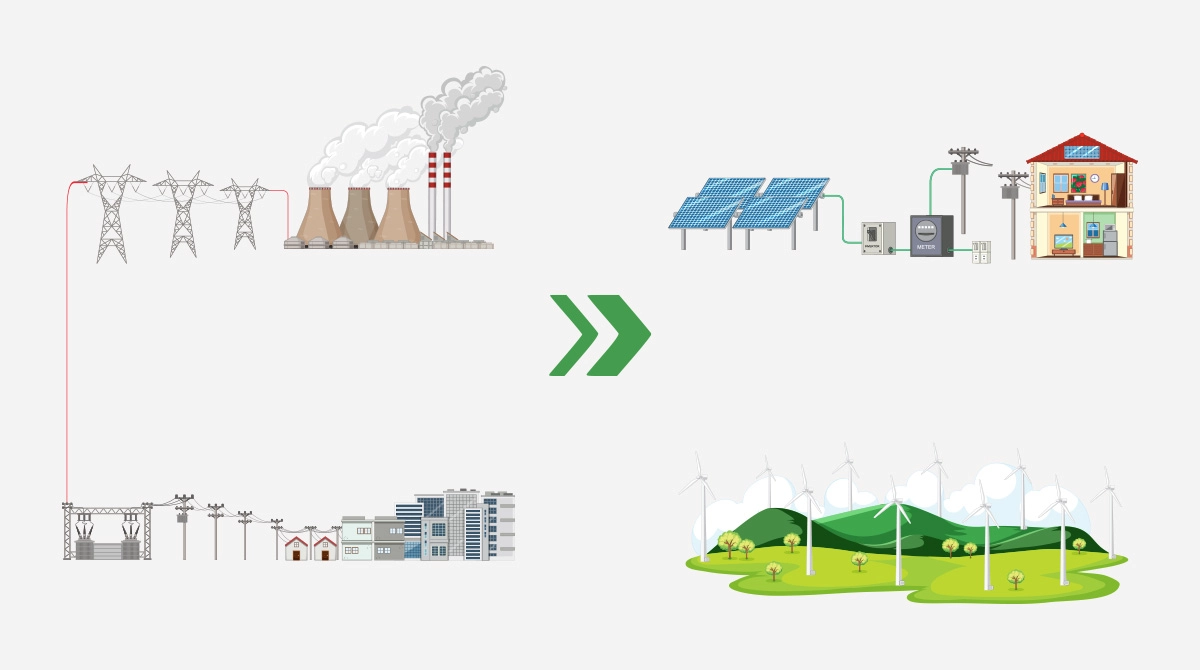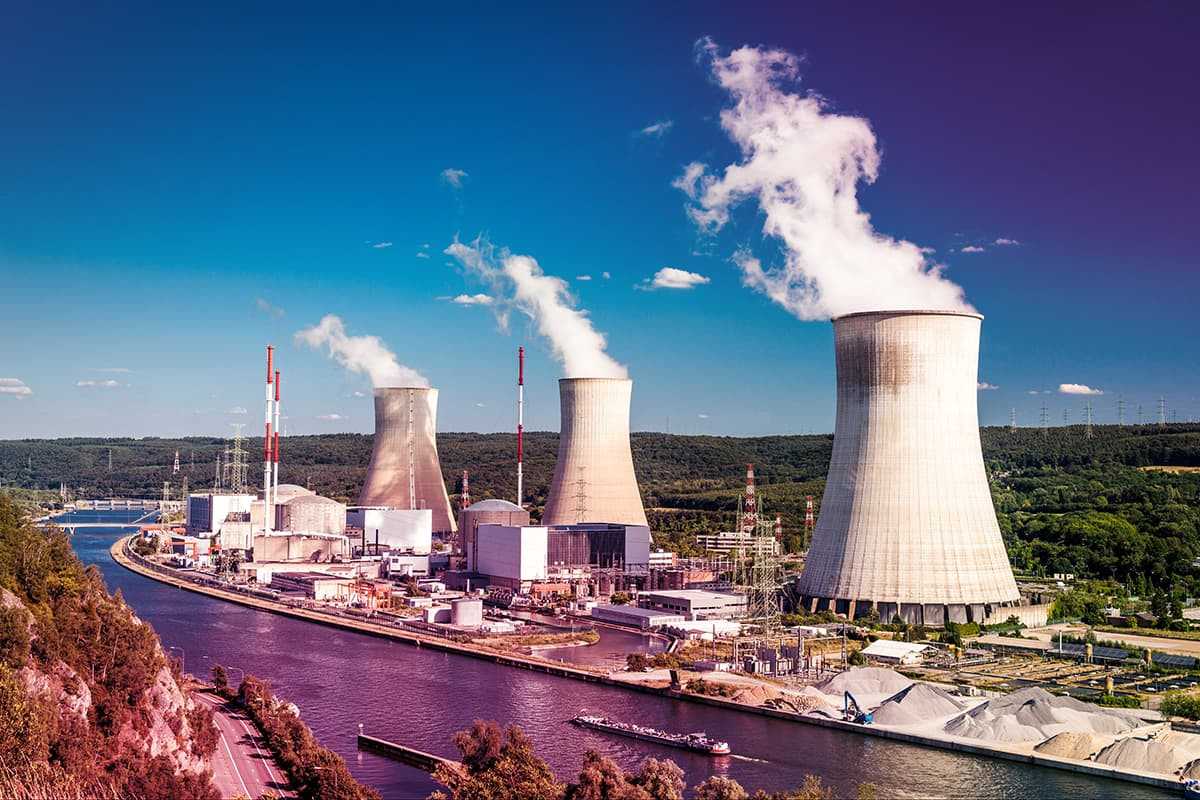
What are Fossil Fuels? The Importance of Fossil Fuels in Electricity Generation
What is in this article?
Fossil fuels are widely used for both heating and energy production. Fossil resources are extensively used across various sectors, including transportation. Fossil fuels also play a major role in electricity generation. So, what is the role of fossil fuels in electricity generation? Which technologies are used to generate electricity from fossil fuels? What are the differences between fossil fuels and renewable energy? All the information you’re curious about regarding fossil fuels can be found in this blog post.
 What are Fossil Fuels? Basic Information and Their Types
What are Fossil Fuels? Basic Information and Their Types
Fossil fuels are energy sources rich in carbon and hydrocarbons, formed over centuries as plant and animal remains decompose in an oxygen-free environment. Natural gas, oil and coal are the most recognized forms of fossil fuels. Fossil fuels rank among the most commonly utilized resources for satisfying worldwide energy needs. Fossil fuels like coal and oil are widely utilized, particularly for generating electricity.
Coal
Of all fossil fuels, coal has served as the most commonly utilized energy source since ancient eras. There are four types of coal: peat, lignite, bituminous, and anthracite, which are used as energy sources. Coal is the fossil fuel with the highest carbon content. Therefore it can be said that it causes more air pollution than oil and natural gas.
Oil
Petroleum, also known as oil, is a fossil fuel utilized for generating electricity and powering transportation vehicles. Petroleum-based fuels like gasoline and diesel release carbon emissions into the air when consumed. Additionally, when oil leaks occur, they can lead to environmental issues such as water pollution.
Natural gas
Natural gas is a type of fossil fuel processed in thermal power plants to generate energy for heating and lighting. It is one of the most commonly used energy sources for heating and hot water production in homes and workplaces. Compared to other fossil fuels like oil and coal, it is considered to produce fewer carbon emissions.
 The Role of Fossil Fuels in Electricity Generation
The Role of Fossil Fuels in Electricity Generation
Fossil fuels are among the most widely used sources for electricity generation. Fossil fuels such as bituminous coal, lignite coal, oil, and natural gas are commonly used in electricity production. However, due to their impact on air pollution, there is an increasing shift towards renewable energy sources in electricity generation.
Since the Industrial Revolution, it is widely known that fossil fuels have been the primary source of energy generation. However the oil crisis of the 1970s prompted a worldwide quest for alternative energy sources. The increase in oil prices during the 1970s led to a short term energy crisis across the globe. Consequently, from the 1970s onward, the adoption of alternative sources to fossil fuels for electricity generation grew.
As electricity generation from renewable sources like wind, solar, and hydropower has increased, the share of fossil resources in energy production has begun to decrease. Especially since the 2000s, environmental issues like global warming and greenhouse gases have contributed to a reduction in the use of fossil fuels, which cause effects such as air pollution.
While renewable sources are increasingly used in electricity generation as part of sustainability efforts, fossil fuels remain a common choice for energy production. According to scientific studies on electricity generation, global electricity demand has risen by 2.5%, with 80% of this demand being met by solar and wind sources (IEA, October 2023). However, even though the share of fossil fuels in electricity generation has declined, fossil fuel use in energy production persists.
Fossil Fuel Based Electricity Generation Technologies
In Türkiye, 70% of electricity is generated from fossil fuels. Heat produced from burning coal, oil, or natural gas in thermal power plants is converted into electricity. In the boilers inside thermal power plants, water is heated by burning fossil fuels such as coal, natural gas, and oil, and then turned into steam. The force of the steam drives turbines to generate electricity.
Apart from thermal power plants, electricity can also be produced in enclosed spaces using various production technologies. For individual electricity needs, generators can be used to produce energy from fossil fuels. Particularly during power outages, innovative equipment such as generators can be used to produce electricity from fuels like gasoline and diesel.

Environmental Impact and Sustainability of Fossil Fuels
Fossil fuels like coal, natural gas, and oil contribute to various environmental impacts when used. To ensure a more sustainable world for future generations, countries and local governments are actively working to find solutions that mitigate the environmental effects caused by fossil fuels. The environmental effects caused by fossil fuels can generally be outlined as follows:
Oil, coal, and natural gas, due to their carbon content, emit harmful gases when burned or used.
In case of oil and natural gas leaks, both air and water pollution can occur.
The carbon emissions from fossil fuels that accumulate in the atmosphere contribute to the greenhouse effect, causing environmental issues such as global warming and climate change.
High concentrations of carbon gas in enclosed spaces, caused by fossil fuels, can lead to poisoning and explosions if not ventilated properly.
The Future of Renewable Energy and Fossil Fuels
To reduce harmful gas emissions, air pollution, and environmental damage, utilizing renewable sources alongside fossil fuels is a crucial step toward sustainability. Additionally, the depletion of fossil fuel reserves makes it necessary to explore alternative sources for electricity generation.
Renewable energy sources are utilized in electricity generation to reduce the environmental impact of fossil fuels. Renewable energy from sources like solar, wind, geothermal, and hydropower is not only inexhaustible but also does not contribute to environmental pollution. As a result, with advancing technology and innovation, it can be said that the role of fossil fuels in energy generation is gradually being replaced by renewable sources. Nevertheless, it may take a considerable amount of time before the share of fossil fuels, which have been the primary energy source since the Industrial Revolution, is completely phased out in electricity generation.
The Shift from Fossil Fuels to Clean Energy

In an effort to reduce their carbon footprint, countries and businesses are increasingly relying on alternatives to fossil fuels. In this regard, global agreements like the Kyoto Protocol and the Paris Climate Agreement are guiding the transition to clean energy. As part of this transition, energy generation is increasingly centered around renewable sources like wind, solar, and hydro, instead of depending on fossil fuels. In the transition to clean energy, both businesses and countries aim to increase energy efficiency and use resources more sustainably, adopting sustainable practices along the way. You can also contribute to this transition through various energy saving activities.
If you'd like to learn more about fossil fuels and clean energy, feel free to share any points you find interesting with us.

 Online Services
Online Services Application Inquiry
Application Inquiry Pay Assurance Fee
Pay Assurance Fee Query Installation Number
Query Installation Number Compensation Fee Inquiry
Compensation Fee Inquiry Automatic Payment Order Inquiry
Automatic Payment Order Inquiry Partnership
Partnership

.webp)





Leave a Comment